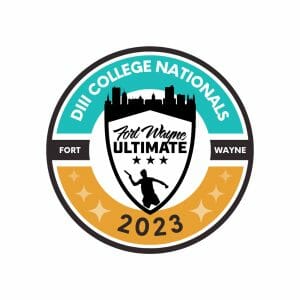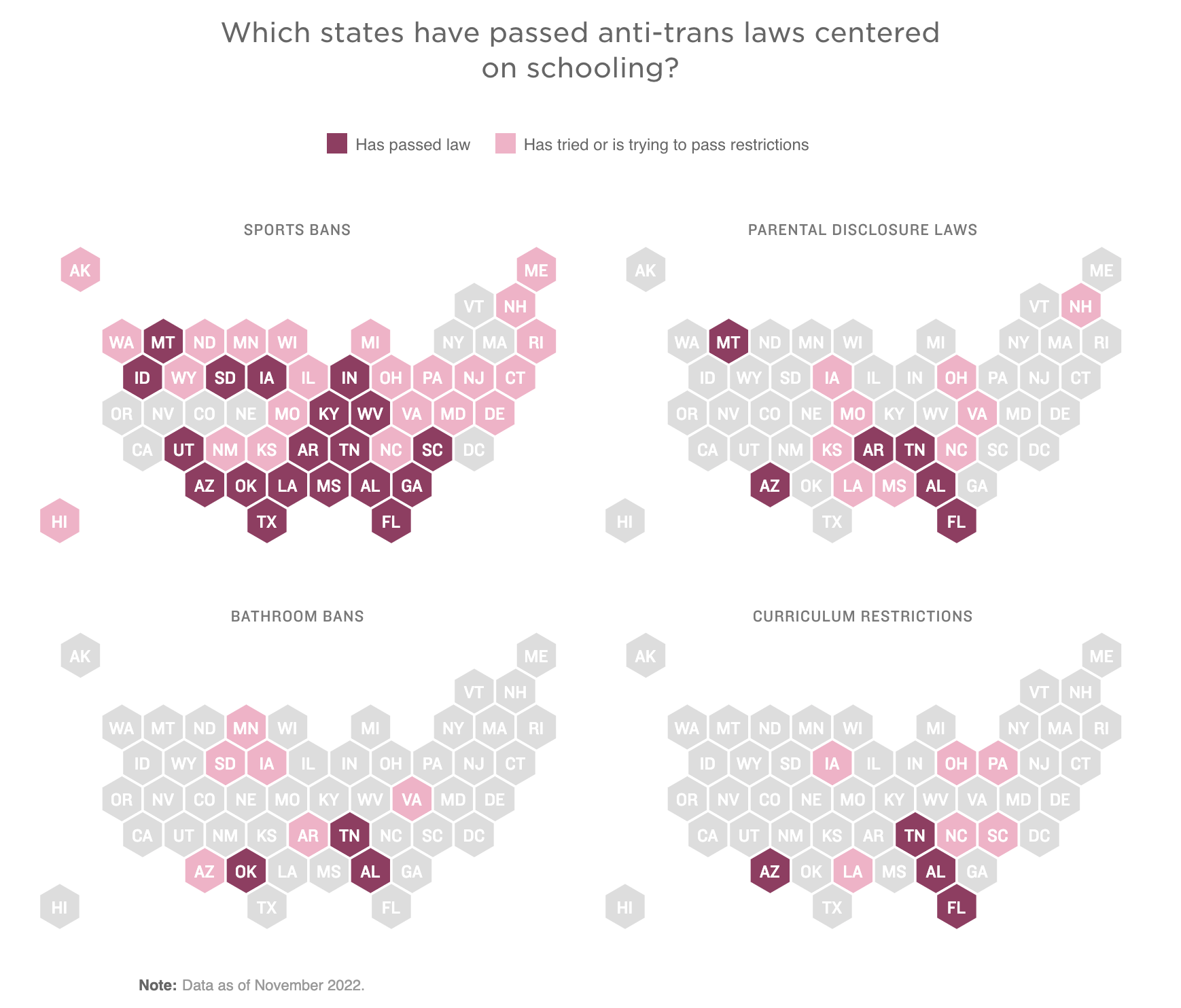The USAU EDI committee determined that Indiana should not host one of its major tournaments.
December 23, 2022 by Charlie Eisenhood in News with 0 comments

USA Ultimate initially planned to host the 2023 Division III College Championships in Fort Wayne, Indiana, but changed course after the organization’s Equity, Diversity, and Inclusion committee determined that USAU should not host it there due to Indiana laws targeting transgender people, Ultiworld has learned.
After a months-long bid process, USAU told Fort Wayne Ultimate (FWU) in early November that their proposal had been selected, said FWU President Jeff Ratajczak. He signed the attached letter of intent and waited for the official announcement from USAU. But in early December, he got word that there may be a problem: the USAU EDI committee was unsure about hosting a big national event in Indiana, due to the state’s new laws barring transgender women and girls from competing on public schools’ women’s sports teams.
FWU, the city of Fort Wayne, the tourist bureau, and other area entities supporting the bid sent in letters to USAU stating their commitment to inclusion, but on December 16th, USAU staff emailed Ratajczak with the news that USAU would not be moving forward with Fort Wayne. “We put together a bid that was perfect until it wasn’t all of a sudden,” said Ratajczak.
“As the decision was being considered to award the bid to Fort Wayne, we performed a final audit of anti-trans laws in Indiana and discovered that one was in effect, which led to us evaluating alternatives in the general area,” said USAU Director of Communications Andy lee. “This included Columbus, which had previously bid on – and was awarded – the D-III championships in 2020 before the pandemic cancelled it.”
The TD of the 2023 D-III College Championships, Rodger Oakes, said that USAU reached out to him in early December asking if he would run the event in Columbus. They had previously discussed it over the summer when it looked like Cincinnati was going to be the host for the D-I Championships. He agreed.
Lee said that USAU does not have a policy in place that strictly bars the organization from hosting its biggest national events in states with anti-trans laws. “It is one of many internal criteria we consider during our process of evaluating bids for national championship events,” he said. “As a [national governing body], we look at laws specific to the sphere in which we operate – i.e. sports inclusion/participation. Because these laws are inconsistent with our Gender Inclusion Policy, they can have a negative impact on the bid.” The USAU email to Ratajczak said that the organization won’t be hosting any of its six national championship events in states with anti-trans laws.
Anti-transgender laws, often targeting trans girls on school-based teams, have proliferated this year around the country. 19 states have passed laws limiting sports participation for trans girls in girls divisions.

There is precedent for USAU’s policy: in 2016, the NCAA pulled seven championship games out of North Carolina due to the state passing a “bathroom bill” law that required people to use bathrooms according to their gender at birth. The USAU College Championships were held in North Carolina that year. Amidst some calls for the governing body to change the location of the tournaments, USAU announced a number of efforts to protest the laws, including the use of rainbow-printed discs at the events. The controversial law fully lapsed in 2020.
The NCAA said last year that it will only host championship events in places that are “free of discrimination” in a show of support for transgender athletes, but many of its 2023 championships are set to be held in states that have passed anti-trans laws.
Ratajczak understands the challenge USAU faces — “It’s a tough spot for an organization like that to make a decision, especially when they’re in the social justice arena,” he said — but is frustrated by the decision.
“The thing that was super irritating is that they took it away from us to give it to Ohio, which has two bills that are likely going to pass the first quarter of next year that are anti-trans,” he said.
The Ohio house and senate have both already passed bills requiring public school students to play in the division of their gender at birth, but they failed during reconciliation votes earlier this month. The Ohio senate leader has already committed to reintroducing the bill in early 2023. Ohio republican governor Mike DeWine has publicly opposed the bills but has not committed to vetoing a measure that gets passed. Both Indiana and Utah’s governors vetoed similar legislation but had their vetoes overridden by the legislature.
Lee said that if Ohio were to pass anti-trans laws next year that USAU would not relocate the College Championships. “Instead, we will work to find other impactful ways to support the trans community locally during the event,” he said.
USAU told Ratajczak that Fort Wayne should continue bidding on regional events. The organization hosted Great Lakes College Regionals in 2022.
Earlier this week, the 2023 D-III College Championships were publicly announced to be held in Columbus, OH, from May 20-22.